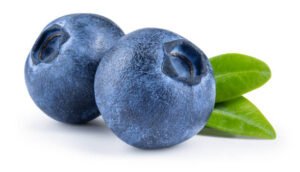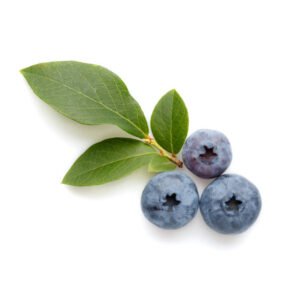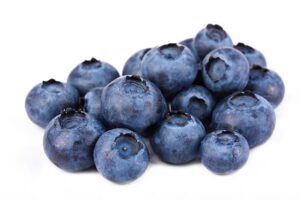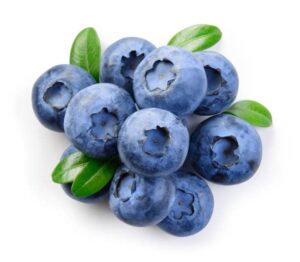Blueberries, those small, indigo-hued fruits, have captivated not only taste buds but also scientific curiosity for their potential health benefits. Renowned for their vibrant color and delicious taste, blueberries are more than just a flavorful addition to breakfast bowls and desserts; they are powerhouses of nutrition with a myriad of health benefits supported by scientific research.
 Antioxidant Properties
Antioxidant Properties
The antioxidant capacity of blueberries is one of their most celebrated attributes. Antioxidants combat oxidative stress in the body, protecting cells from damage caused by free radicals. Studies have shown that the high levels of antioxidants in blueberries may help reduce the risk of chronic diseases such as heart disease, cancer, and neurodegenerative conditions like Alzheimer’s disease.
One key class of antioxidants found in blueberries is flavonoids, particularly anthocyanins, which give blueberries their vibrant hue. Anthocyanins have been extensively studied for their potent antioxidant effects, demonstrating the ability to neutralize harmful free radicals and reduce inflammation in the body. Additionally, blueberries contain other flavonoids such as quercetin and myricetin, further enhancing their antioxidant capacity.
Moreover, blueberries are a notable source of vitamin C, another powerful antioxidant that plays a crucial role in scavenging free radicals and supporting immune function. Vitamin C works synergistically with other antioxidants present in blueberries, amplifying their collective protective effects against oxidative stress. Furthermore, blueberries provide a significant amount of vitamin E, yet another antioxidant that helps maintain cellular integrity and protects against lipid peroxidation.
In addition to their antioxidant prowess, blueberries possess unique properties that distinguish them from other fruits and plants. For instance, they contain a high concentration of proanthocyanidins, which are oligomeric flavonoids renowned for their ability to strengthen collagen structures in blood vessels, thereby promoting cardiovascular health. This distinctive feature underscores the cardiovascular benefits associated with regular blueberry consumption.
 Heart Health
Heart Health
Consuming blueberries has been linked to improved heart health. Research suggests that regular intake of blueberries may lower blood pressure and reduce levels of oxidized LDL cholesterol, both of which are risk factors for heart disease. The flavonoids in blueberries have been shown to enhance endothelial function, which contributes to better blood flow and overall cardiovascular health.
One notable characteristic is their high concentration of antioxidants, particularly anthocyanins. These pigments give blueberries their vibrant color and are potent scavengers of free radicals, which are unstable molecules that can damage cells and contribute to various chronic diseases, including cardiovascular disorders. The abundance of antioxidants in blueberries not only helps protect against oxidative stress but also supports overall cellular health, including the cells lining the blood vessels.
Moreover, blueberries are rich in fiber, which plays a crucial role in maintaining heart health. Dietary fiber has been associated with lower levels of cholesterol and improved digestion, both of which are important factors in reducing the risk of heart disease. The soluble fiber found in blueberries forms a gel-like substance in the digestive tract, which can help trap cholesterol and prevent its absorption into the bloodstream. By lowering cholesterol levels and promoting regular bowel movements, blueberries contribute to a healthier cardiovascular system.
 Cognitive Function
Cognitive Function
Blueberries have gained attention for their potential to support brain health and cognitive function. Several studies have indicated that the antioxidants in blueberries may help delay age-related cognitive decline and improve memory and learning. Moreover, the anti-inflammatory properties of blueberries may play a role in protecting brain cells from damage and reducing the risk of neurodegenerative diseases.
One distinguishing feature of blueberries is their high level of proanthocyanidins, which are potent antioxidants known for their ability to cross the blood-brain barrier and exert protective effects on brain cells. These compounds have been shown to modulate signaling pathways involved in memory and learning processes, thereby enhancing cognitive performance. Additionally, blueberries contain resveratrol, a polyphenol also found in red grapes and wine, which has been linked to neuroprotective effects and may contribute to the overall cognitive benefits of consuming blueberries.
Moreover, the combination of various phytochemicals present in blueberries works synergistically to support brain health. For example, the interaction between anthocyanins and other antioxidants in blueberries may amplify their individual effects, resulting in enhanced cognitive function. Additionally, the fiber content of blueberries promotes gut health, which emerging research suggests may have indirect effects on brain function through the gut-brain axis.
 Blood Sugar Regulation
Blood Sugar Regulation
For individuals managing blood sugar levels, incorporating blueberries into their diet may be beneficial. Research suggests that the anthocyanins in blueberries may improve insulin sensitivity and reduce the risk of type 2 diabetes. Additionally, the fiber content in blueberries aids in regulating blood sugar levels by slowing down digestion and promoting satiety.
Alongside anthocyanins, blueberries contain flavonoids, such as quercetin and myricetin, which have been shown to improve glucose metabolism and insulin sensitivity. Moreover, the presence of polyphenols in blueberries exerts antioxidant effects, protecting pancreatic cells from oxidative stress and enhancing their function in insulin production.
Furthermore, blueberries are rich in soluble fiber, particularly pectin, which forms a gel-like substance in the digestive tract, slowing down the absorption of sugars into the bloodstream. This gradual release of glucose helps prevent spikes in blood sugar levels after meals, providing sustained energy and reducing the risk of insulin resistance. Additionally, the high fiber content promotes satiety, aiding in weight management—an essential aspect of blood sugar control.
 Digestive Health
Digestive Health
Blueberries are rich in dietary fiber, which plays a crucial role in digestive health. Fiber aids in promoting regularity, preventing constipation, and supporting a healthy digestive system. Additionally, the presence of certain compounds in blueberries, such as polyphenols, may contribute to the growth of beneficial gut bacteria, fostering a healthy gut microbiome.
Moreover, blueberries contain specific compounds like pectin, a type of soluble fiber known for its gel-forming abilities. This attribute aids in the formation of a protective barrier along the intestinal lining, promoting smoother digestion and reducing the risk of gastrointestinal issues. Additionally, the presence of certain enzymes in blueberries, such as amylase and pectinase, facilitates the breakdown of complex carbohydrates and fibers, further enhancing digestive efficiency.
 Skin Health
Skin Health
The antioxidants found in blueberries can also benefit the skin. These compounds help combat oxidative stress caused by environmental factors like UV radiation and pollution, which can lead to premature aging and skin damage. Incorporating blueberries into your diet may help maintain youthful-looking skin and protect against the development of wrinkles and age spots.
Blueberries are particularly rich in a group of antioxidants called anthocyanins, which give them their characteristic deep blue color. These anthocyanins have been shown to have potent anti-inflammatory properties, which can be especially beneficial for skin health. Inflammation is a key factor in various skin conditions such as acne, eczema, and psoriasis. By reducing inflammation, blueberries may help alleviate symptoms and promote overall skin wellness.
Moreover, blueberries contain high levels of vitamin C, another powerful antioxidant crucial for skin health. Vitamin C plays a key role in collagen synthesis, the protein responsible for maintaining the skin’s structure and elasticity. Collagen production naturally declines with age, leading to sagging skin and the formation of wrinkles. By providing ample vitamin C, blueberries support collagen production, helping to keep the skin firm and supple.
Additionally, blueberries boast a diverse array of vitamins and minerals, including vitamin E, vitamin K, and manganese, all of which contribute to skin health in various ways. Vitamin E is known for its moisturizing and healing properties, helping to nourish and repair damaged skin. Vitamin K is involved in blood clotting and may help reduce the appearance of dark circles under the eyes. Manganese, on the other hand, supports the production of collagen and promotes skin regeneration.
 Eye Health
Eye Health
Blueberries contain compounds such as lutein and zeaxanthin, which are beneficial for eye health. These antioxidants are known to accumulate in the retina and help protect against age-related macular degeneration, a leading cause of vision loss in older adults. Regular consumption of blueberries may contribute to maintaining good vision and reducing the risk of eye diseases.
Beyond lutein and zeaxanthin, they also contain anthocyanins, which are potent antioxidants responsible for the fruit’s vibrant blue color. These anthocyanins have been found to improve blood flow to the eyes and reduce inflammation, further supporting overall ocular health. Additionally, blueberries are rich in vitamin C, another crucial nutrient for eye health. Vitamin C helps maintain the health of blood vessels in the eyes and may lower the risk of developing cataracts, another common age-related eye condition.
Furthermore, the high levels of fiber in blueberries can indirectly benefit eye health by promoting overall cardiovascular health. Since the eyes rely on a steady supply of oxygen and nutrients delivered through the blood vessels, maintaining cardiovascular health is essential for preserving optimal vision. By supporting heart health, blueberries indirectly contribute to the well-being of the eyes.
Anti-Inflammatory Effects
Chronic inflammation is linked to the development of various diseases, including arthritis, diabetes, and heart disease. Blueberries possess anti-inflammatory properties attributed to their high levels of antioxidants, particularly anthocyanins. These compounds help reduce inflammation in the body, potentially lowering the risk of chronic inflammatory conditions and promoting overall health.
Moreover, blueberries are rich in vitamin C and vitamin E, both of which are powerful antioxidants known for their ability to neutralize free radicals and mitigate oxidative stress. By reducing oxidative damage to cells and tissues, these vitamins contribute to the overall anti-inflammatory activity of blueberries. Additionally, blueberries contain dietary fiber, particularly soluble fiber such as pectin, which has been shown to modulate the immune response and decrease inflammation in the gut.
Another distinguishing feature of blueberries is their high concentration of unique polyphenols, such as pterostilbene and resveratrol. These polyphenols have been found to possess potent anti-inflammatory properties, potentially exerting protective effects against chronic inflammatory conditions. Furthermore, blueberries have a low glycemic index, which means they have minimal impact on blood sugar levels, making them suitable for individuals managing inflammatory conditions such as diabetes.
Cancer Prevention
Emerging research suggests that the compounds found in blueberries may have anti-cancer properties. Studies have shown that the antioxidants and other bioactive compounds in blueberries can inhibit the growth and spread of cancer cells, particularly in cancers of the colon, breast, and prostate. While more research is needed, including blueberries as part of a balanced diet may contribute to cancer prevention efforts.
Blueberries are renowned for their rich concentration of phytochemicals, particularly anthocyanins. These anthocyanins, along with other polyphenolic compounds like flavonols and phenolic acids, exhibit potent antioxidant properties. Antioxidants help neutralize harmful free radicals in the body, which can damage DNA and contribute to the initiation and progression of cancer.
Moreover, blueberries contain high levels of vitamins C and K, as well as manganese. Vitamin C is known for its role in boosting the immune system and aiding in the body’s natural defense mechanisms against cancer cells. Vitamin K has been linked to reducing the risk of certain cancers, including prostate and liver cancer. Manganese, on the other hand, is an essential cofactor for several enzymes involved in antioxidant defense and DNA repair processes, further bolstering blueberries’ cancer-fighting potential.
Weight Management
Blueberries are low in calories and high in fiber, making them a valuable addition to weight management diets. The fiber content helps promote feelings of fullness and satiety, reducing overall calorie intake and aiding in weight control. Additionally, the natural sweetness of blueberries can satisfy cravings for sugary snacks, making them a healthier alternative for those watching their weight.
Furthermore, blueberries boast unique phytochemicals such as anthocyanins, which not only give them their vibrant hue but also contribute to their health-promoting properties. Anthocyanins have been linked to various health benefits, including improved insulin sensitivity, reduced inflammation, and enhanced fat metabolism. These compounds may play a crucial role in regulating blood sugar levels and preventing insulin resistance, which are essential aspects of effective weight management.
Moreover, the antioxidants found abundantly in blueberries, such as vitamin C and flavonoids, help combat oxidative stress and inflammation in the body. Chronic inflammation has been associated with obesity and metabolic syndrome, making foods rich in antioxidants, like blueberries, valuable allies in weight management efforts. By reducing inflammation, these antioxidants may support overall metabolic health and facilitate weight loss.
Additionally, blueberries are a good source of vitamins and minerals, including vitamin K, manganese, and vitamin E, which are essential for various metabolic processes in the body. Vitamin K, for instance, plays a role in regulating calcium, which is involved in fat metabolism and bone health. Manganese is necessary for carbohydrate metabolism, while vitamin E acts as an antioxidant, protecting cells from damage caused by free radicals generated during metabolism.
Muscle Recovery
For individuals engaged in regular physical activity or sports, blueberries may offer benefits for muscle recovery. The antioxidants in blueberries help reduce inflammation and oxidative stress, which can occur as a result of intense exercise. Consuming blueberries post-workout may support faster recovery and reduce muscle soreness, allowing for more effective training sessions.
What sets blueberries apart is their ability to target multiple pathways involved in muscle recovery. Not only do they combat inflammation and oxidative stress, but they also promote blood flow and enhance nutrient delivery to muscle tissues. This dual action of reducing damage while facilitating repair makes blueberries an ideal choice for post-exercise recovery.
Immune Support
The immune-boosting properties of blueberries can contribute to overall immune health. Vitamin C, abundantly found in blueberries, plays a crucial role in supporting immune function by enhancing the production of white blood cells and antibodies, which help the body fight off infections and illnesses. Regular consumption of blueberries may help strengthen the immune system and reduce the risk of common colds and infections.
In addition to vitamin C, blueberries boast a rich array of antioxidants, particularly flavonoids like anthocyanins. These compounds are renowned for their potent anti-inflammatory properties, which can help regulate immune responses and mitigate excessive inflammation that may lead to tissue damage. Moreover, blueberries contain a unique combination of phytochemicals, such as quercetin and resveratrol, which have been shown to support immune function by modulating the activity of immune cells and reducing oxidative stress.
Furthermore, blueberries are a rich source of dietary fiber, which not only promotes digestive health but also influences the gut microbiota composition. A healthy gut microbiome is increasingly recognized as crucial for robust immune function, as it regulates the balance of pro- and anti-inflammatory signals in the body. By nourishing beneficial gut bacteria, blueberries indirectly contribute to overall immune resilience.
Moreover, research suggests that certain compounds in blueberries, such as pterostilbene, may possess antimicrobial properties, potentially aiding in the prevention of infections by inhibiting the growth of pathogens. This multifaceted approach to immune support sets blueberries apart as a versatile and valuable addition to a balanced diet aimed at bolstering overall health and resilience against illness.
Bone Health
Blueberries contain several nutrients essential for bone health, including vitamin K and manganese. Vitamin K is involved in bone metabolism and helps maintain bone density, while manganese plays a role in bone formation and mineralization. Incorporating blueberries into the diet, along with other calcium-rich foods, can contribute to optimal bone health and reduce the risk of osteoporosis and fractures, especially in older adults.
In addition to their rich content of vitamin K and manganese, blueberries boast unique phytonutrients that contribute to bone health. One such compound is resveratrol, a polyphenol known for its anti-inflammatory and antioxidant properties. Resveratrol has been shown to enhance bone density and strength by promoting bone formation and inhibiting bone resorption, the process by which old bone is broken down and replaced with new bone tissue.
Moreover, blueberries are abundant in flavonoids, particularly anthocyanins. These flavonoids exhibit anti-inflammatory effects and have been linked to improved bone health by reducing oxidative stress and inflammation in bone tissue. By mitigating inflammation, anthocyanins may help prevent the degradation of bone structure and preserve overall bone integrity.
Furthermore, recent studies have highlighted the role of blueberry-derived compounds, such as pterostilbene, in enhancing bone health. Pterostilbene exhibits similarities to resveratrol and has been shown to exert protective effects on bone by stimulating osteoblast activity, the cells responsible for bone formation, and suppressing osteoclast activity, which is involved in bone resorption. This dual action promotes bone remodeling and maintains skeletal strength.
Nutritional Value of Blueberries (per 100 grams)
- Calories: Approximately 57 kcal
- Protein: About 0.7 grams
- Fat: Less than 0.3 grams
- Saturated Fat: Negligible
- Monounsaturated Fat: Negligible
- Polyunsaturated Fat: Negligible
- Carbohydrates: Approximately 14.5 grams
- Dietary Fiber: Around 2.4 grams
- Sugars: Approximately 9.9 grams
- Vitamins:
- Vitamin C: Approximately 9.7 milligrams (16% of the Daily Value)
- Vitamin K: Approximately 19.3 micrograms (24% of the Daily Value)
- Vitamin E: Approximately 0.6 milligrams (3% of the Daily Value)
- Vitamin A: Approximately 54 international units (1% of the Daily Value)
- Vitamin B6: Approximately 0.1 milligrams (5% of the Daily Value)
- Minerals:
- Potassium: Approximately 77 milligrams (2% of the Daily Value)
- Calcium: Approximately 6 milligrams (1% of the Daily Value)
- Magnesium: Approximately 6 milligrams (2% of the Daily Value)
- Phosphorus: Approximately 12 milligrams (1% of the Daily Value)
- Iron: Approximately 0.3 milligrams (2% of the Daily Value)
- Other Nutrients:
- Anthocyanins: Approximately 163 milligrams
- Flavonols: Approximately 25 milligrams
- Phenolic Acids: Approximately 53 milligrams
Note: The values provided are approximate and may vary slightly based on factors such as ripeness and growing conditions.
Blueberries are low in calories and fat while being rich in vitamins, particularly vitamin C and vitamin K, as well as various minerals and antioxidants like anthocyanins and flavonols. Incorporating blueberries into your diet can provide a nutrient boost and support overall health
Conclusion
Incorporating blueberries into your diet offers a delicious and nutritious way to support overall health and well-being. From promoting heart health and cognitive function to regulating blood sugar levels, the scientific evidence supporting the health benefits of blueberries is compelling. Whether enjoyed fresh, frozen, or in various culinary creations, blueberries stand out as a versatile superfood worthy of regular consumption for a healthier life.
 Get ready to tantalize your taste buds with a delightful Scandinavian-inspired treat – Sexy Swedish Buns! These heavenly creations are not just your average buns; they’re beautifully crafted with a brioche-like dough infused with the sweetness of blueberries. Perfect for breakfast, brunch, or a sweet snack, these buns are guaranteed to steal the show on any occasion.
Get ready to tantalize your taste buds with a delightful Scandinavian-inspired treat – Sexy Swedish Buns! These heavenly creations are not just your average buns; they’re beautifully crafted with a brioche-like dough infused with the sweetness of blueberries. Perfect for breakfast, brunch, or a sweet snack, these buns are guaranteed to steal the show on any occasion.
In this recipe curated by culinary maestro Jamie Oliver, you’ll embark on a culinary journey to create these irresistible treats from scratch. With simple ingredients and easy-to-follow instructions, you’ll soon find yourself immersed in the joy of baking as your kitchen fills with the heavenly aroma of freshly baked buns.
Whether you’re a seasoned baker or a novice in the kitchen, these Sexy Swedish Buns promise to be a rewarding endeavor. So, roll up your sleeves, preheat your oven, and let’s dive into the world of baking these delectable blueberry-filled delights!
Contraindications to consuming blueberries
Allergic Reactions: Some individuals may experience allergic reactions to blueberries, especially those with known allergies to similar fruits or berries. Symptoms of an allergic reaction may include itching, swelling, hives, difficulty breathing, or anaphylaxis. If you have a known allergy to blueberries or other berries, it’s essential to avoid consuming them and seek medical advice if accidental ingestion occurs.
Blood Thinning Medications: Blueberries contain compounds that may have a mild blood-thinning effect. While this is generally beneficial for heart health, individuals taking blood-thinning medications such as warfarin or aspirin should exercise caution when consuming large amounts of blueberries. Excessive consumption could potentially increase the risk of bleeding or interfere with the effectiveness of these medications. It’s advisable to consult with a healthcare professional to determine an appropriate intake level based on individual circumstances.
Digestive Issues: In some cases, excessive consumption of blueberries may lead to digestive issues such as diarrhea or stomach discomfort, particularly in individuals with sensitive stomachs or those prone to digestive problems. This effect may be due to the high fiber content of blueberries or certain compounds that can irritate the digestive system. Moderation is key, and individuals experiencing digestive issues after consuming blueberries should reduce their intake or avoid them altogether.
Interaction with Medications: Blueberries contain compounds that may interact with certain medications. For example, blueberries are rich in vitamin K, which can affect blood clotting and may interfere with anticoagulant medications like warfarin. Additionally, blueberries contain salicylates, which are similar to aspirin and may interact with blood-thinning medications or exacerbate conditions like aspirin sensitivity. It’s important for individuals taking medications to consult with their healthcare provider before adding blueberries to their diet to avoid potential interactions.
High Potassium Levels: While blueberries are not particularly high in potassium compared to some other fruits, individuals with kidney problems or those on a potassium-restricted diet may need to monitor their intake of potassium-containing foods, including blueberries. Excessive potassium intake can be harmful to individuals with impaired kidney function and may lead to electrolyte imbalances. Consulting with a healthcare provider or dietitian can help determine a suitable intake level for individuals with specific dietary restrictions or health concerns.
Overall, while blueberries offer numerous health benefits, it’s essential to be mindful of potential contraindications and consume them in moderation, especially if you have underlying health conditions or are taking medications. If you have any concerns or experience adverse effects after consuming blueberries, it’s advisable to consult with a healthcare professional for personalized advice.
Fascinating Facts About Blueberries
- Ancient Origins
Did you know that blueberries have a rich history dating back thousands of years? Native to North America, blueberries have been enjoyed by Indigenous peoples for centuries, who recognized not only their delicious flavor but also their medicinal properties. Early European settlers learned about blueberries from Indigenous communities and eventually incorporated them into their own culinary traditions.
- Wild and Cultivated Varieties
While we often encounter cultivated blueberries in supermarkets and farmers’ markets, wild blueberries have their own unique charm. Wild blueberries are smaller in size and boast a more intense flavor compared to their cultivated counterparts. They thrive in acidic, rocky soils and are often found in regions with cooler climates, such as parts of North America and Europe.
- Brain Boosters
Emerging research suggests that blueberries may offer cognitive benefits, earning them the nickname “brain berries.” Studies have shown that the antioxidants and other bioactive compounds in blueberries may help improve memory, enhance learning, and protect against age-related cognitive decline. Regular consumption of blueberries has been linked to better cognitive function and a reduced risk of neurodegenerative diseases like Alzheimer’s.
- Environmental Superstars
In addition to their culinary and health benefits, blueberries play a vital role in supporting biodiversity and ecosystem health. Blueberry bushes provide habitat and food for a variety of wildlife, including birds, bees, and butterflies. Moreover, blueberry cultivation practices that prioritize sustainable farming methods can help conserve soil health, protect water quality, and promote biodiversity in agricultural landscapes.
- Seasonal Spectacles
Blueberry season is a time of abundance and delight for both growers and enthusiasts alike. Depending on the region, blueberry season typically spans from late spring to late summer, offering a window of opportunity to indulge in fresh, ripe berries bursting with flavor. Many communities celebrate blueberry season with festivals and events, showcasing the versatility and beauty of this beloved fruit.
- The Blueberry’s Secret Identity
Blueberries aren’t just blue – they can be red or even white! While the common cultivated blueberry (Vaccinium corymbosum) is typically blue-purple when ripe, there are other species of blueberries that come in different hues. Some varieties, such as the aptly named “Pink Lemonade,” produce pink berries, while others, like the “Snowchaser,” bear white fruits. These unique varieties offer a surprising twist on the classic blueberry experience.
- Blueberries in Space
Believe it or not, blueberries have boldly gone where few fruits have gone before – outer space! In 2009, NASA included blueberry plants aboard the Space Shuttle Atlantis as part of an experiment to study the effects of microgravity on plant growth and development. The blueberry plants successfully produced fruit in space, demonstrating their resilience and adaptability even in the most challenging environments.
- Blueberry Capital of the World
Maine, known as the “Pine Tree State,” proudly claims the title of the “Blueberry Capital of the World.” The state’s acidic soil, cool climate, and abundant rainfall create ideal conditions for blueberry cultivation. Maine’s wild blueberry fields cover vast expanses of land, stretching across picturesque landscapes and contributing significantly to the state’s agricultural heritage and economy.
- Blueberry Health and Beauty
Beyond their culinary uses, blueberries have found their way into various health and beauty products, thanks to their antioxidant-rich properties. Blueberry extracts and oils are prized for their skincare benefits, believed to help combat aging, promote skin regeneration, and protect against environmental damage. Blueberry-infused hair products also claim to nourish and strengthen hair, leaving locks shiny and vibrant.
- Blueberries: The Ice Age Survivors
Blueberries have a remarkable resilience that dates back to the Ice Age. Fossilized blueberries discovered in Alaska suggest that these resilient fruits have been thriving in North America for over 10,000 years. Despite the harsh conditions of the Ice Age, blueberries managed to survive and adapt, showcasing their ability to withstand extreme environments and thrive in diverse ecosystems.
- Blueberries and Bird Migration
Blueberries play a crucial role in the annual migration patterns of certain bird species, particularly thrushes and waxwings. These birds rely on blueberries as a vital food source during their long migratory journeys. As they feast on ripe blueberries, they help disperse the seeds across vast distances, contributing to the regeneration and dispersal of blueberry plants in different habitats.
- Blueberries and Butterfly Conservation
Blueberries play a crucial role in supporting butterfly populations, particularly those of the Karner blue butterfly (Lycaeides melissa samuelis). The Karner blue butterfly relies on wild blueberry plants as a primary food source during its larval stage. Conservation efforts aimed at preserving blueberry habitats have helped protect the Karner blue butterfly and other endangered species that depend on blueberries for survival.
- Blueberry Mysteries: Crop Circles and Fairy Rings
In some cultures, blueberries have been associated with mystical phenomena, including the formation of crop circles and fairy rings. Folklore suggests that circles of blueberry bushes appearing in fields or forests are the work of mischievous fairies or supernatural beings. While modern science offers rational explanations for these phenomena, the allure of blueberries as symbols of magic and mystery persists in popular imagination.
To explore more plants, please visit our page about plants
References
Basu, A., Rhone, M., & Lyons, T. J. (2010). Berries: emerging impact on cardiovascular health. Nutrition reviews, 68(3), 168–177. https://doi.org/10.1111/j.1753-4887.2010.00273.x
Devore, E. E., Kang, J. H., Breteler, M. M., & Grodstein, F. (2012). Dietary intakes of berries and flavonoids in relation to cognitive decline. Annals of neurology, 72(1), 135–143. https://doi.org/10.1002/ana.23594
Stull, A. J., Cash, K. C., Johnson, W. D., Champagne, C. M., & Cefalu, W. T. (2010). Bioactives in blueberries improve insulin sensitivity in obese, insulin-resistant men and women. The Journal of nutrition, 140(10), 1764–1768. https://doi.org/10.3945/jn.110.125336
Edirisinghe, I., Banaszewski, K., Cappozzo, J., Sandhya, K., Ellis, C. L., Tadapaneni, R., … & Burton-Freeman, B. M. (2011). Strawberry anthocyanin and its association with postprandial inflammation and insulin. British Journal of Nutrition, 106(6), 913-922.
Wu, X., Beecher, G. R., Holden, J. M., Haytowitz, D. B., Gebhardt, S. E., & Prior, R. L. (2006). Lipophilic and hydrophilic antioxidant capacities of common foods in the United States. Journal of Agricultural and Food Chemistry, 54(11), 4069-4075.
Grace, M. H., Esposito, D., Timmers, M. A., Xiong, J., Yousef, G., Komarnytsky, S., … & Lila, M. A. (2014). Chemical composition, antioxidant and anti-inflammatory properties of pistachio hull extracts. Food Chemistry, 150, 10-16.
Stull, A. J., Cash, K. C., Johnson, W. D., Champagne, C. M., & Cefalu, W. T. (2010). Bioactives in blueberries improve insulin sensitivity in obese, insulin-resistant men and women. The Journal of nutrition, 140(10), 1764–1768.
Devore, E. E., Kang, J. H., Breteler, M. M., & Grodstein, F. (2012). Dietary intakes of berries and flavonoids in relation to cognitive decline. Annals of neurology, 72(1), 135–143.
Basu, A., Rhone, M., & Lyons, T. J. (2010). Berries: emerging impact on cardiovascular health. Nutrition reviews, 68(3), 168–177.
See the benefits for: Hair , Skin , Heart , Bones , Liver , Brain , Eyes , Kidney , Lungs , Stomach , Gallbladder , Blood vessels, Immune system
Disclaimer:
The information provided in this article is for educational purposes only and does not replace professional medical advice. Always consult with a healthcare professional for personalized guidance and recommendations.

 Antioxidant Properties
Antioxidant Properties Heart Health
Heart Health Blood Sugar Regulation
Blood Sugar Regulation Digestive Health
Digestive Health Skin Health
Skin Health Eye Health
Eye Health